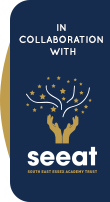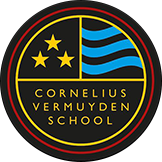Classical Civilisation
Intent
Classical Civilisation focuses on the civilisations of Greece and Rome and is a wide-ranging subject involving the study of literature, art, artefacts, archaeological sites, and the ancient historical context. Ancient civilisations grappled with the same issues we do today: life, death, gods, sex, love, family, children, education, the nature of the world, our origins and development, the past, money, health, status, other cultures, friendship, power, patriotism, politics, law, crime, justice, empire, and war. From women in the Ancient World to religious beliefs and ancient ideas about war, Classical Civilisation involves engaging discussions about topics that remain relevant today.
Knowledge and Skills
Classical Civilisation encourages the development of a wide range of transferable skills:
- You will be able to express yourself clearly, both orally and in writing.
- You will be encouraged to communicate in standard English.
- Although you will not learn a language as part of this qualification, you will become familiar with a range of Greek and Latin words, which you will need to understand, remember, and spell correctly.
- You will select and interpret information, infer and deduce meaning, and develop skills in synthesising information from a range of sources.
- Some of the skills needed for this subject are similar to those required for English Literature, including language analysis and the focused study of character, plot, and theme.
Curriculum Overview
Key Stage 3
As part of the Enrichment Carousel, all students will study areas of Classical Civilisation to get a taste of the full GCSE. We will explore the main Olympian gods and their influence on Greek society, before delving into the birth of philosophical thinking. Additionally, we will examine the founding of Rome and how Roman language and political structures have influenced the development of Western civilisation up to the present day.
Key Stage 4
Students will study a variety of topics including Greek and Roman gods, mythology, religion and worship in the classical world, ceremony and rituals, Sparta and Athens at war in the 5th century, and the Roman military in the Imperial Period. The exam consists of two papers, which will assess knowledge, understanding, and evaluative and analytical skills:
- Paper 1: Myth and Religion (50%)
- Paper 2: War and Warfare (50%)
Career Opportunities in Classical Civilisation
Classical Civilisation is just as valuable as other humanities subjects like History and Geography. It equips you with essential skills such as essay writing and source analysis, and teaches you how to structure a strong argument. It demonstrates your ability to think critically and evaluate information, showing a keen interest in people and cultures. If you plan to continue to sixth form, GCSE Classical Civilisation is excellent preparation for A Levels in a range of subjects, from Art History to Politics and Law. It is often considered alongside other humanities subjects when sixth forms review applications. For those pursuing vocational courses or entering the workforce directly after GCSEs, Classical Civilisation provides a broad base of knowledge and skills. Employers will recognize your wide-ranging interests and your ability to communicate ideas effectively.
Year 7 Curriculum Overview
| What are we learning? |
What knowledge, understanding and skills will we gain? |
What will excellence look like? |
How will this be assessed? |
| xx |
xx |
xx |
xx |
Year 8 Curriculum Overview
| What are we learning? |
What knowledge, understanding and skills will we gain? |
What will excellence look like? |
How will this be assessed? |
| xx |
xx |
xx |
xx |
Year 9 Curriculum Overview
| What are we learning? |
What knowledge, understanding and skills will we gain? |
What will excellence look like? |
How will this be assessed? |
| xx |
xx |
xx |
xx |
Year 10 Curriculum Overview
| What are we learning? |
What knowledge, understanding and skills will we gain? |
What will excellence look like? |
How will this be assessed? |
| xx |
xx |
xx |
xx |
Year 11 Curriculum Overview
| What are we learning? |
What knowledge, understanding and skills will we gain? |
What will excellence look like? |
How will this be assessed? |
| xx |
xx |
xx |
xx |



